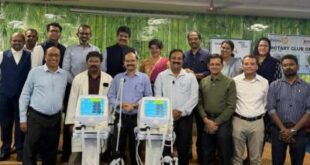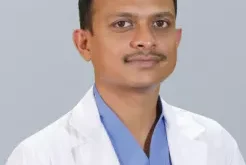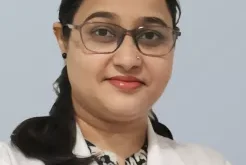Every year, several people across India are hit with the devastating news of a cancer diagnosis, leaving them grappling with uncertainty and emotional turmoil. Often, the disease silently progresses, long before any symptoms appears. The truth is, cancer rarely gives early warnings, but when it does, timely detection can save lives. Regular screenings and health check-ups are not just medical routines; they are acts of care and protection, especially for caregivers striving to safeguard their loved ones.
Why Early Detection Matters
Cancer, in its early stages, is often easier to treat and has better recovery outcomes. However, most cancers in India face delayed diagnosis, when the disease has already advanced. According to the National Cancer Registry Programme (NCRP) under the Indian Council of Medical Research (ICMR), a significant proportion of cancer cases in the country are diagnosed at Stage 3 or 4. Early detection through regular check-ups can transform this reality, offering patients more treatment options, fewer complications, and a stronger chance of survival.
Common Cancers and Why Screening is Vital
Screening is particularly important for cancers that are both common and detectable in early stages. India’s top cancer burden includes breast, cervical, oral, lung, and colorectal cancers, all of which have proven screening methods.
- Breast Cancer:One of the most common cancers among Indian women, early detection through regular self-exams, clinical breast exams, and mammography can dramatically improve recovery rates.
- Cervical Cancer:Often preventable and slow-growing, cervical cancer can be detected through simple Pap smears or HPV testing. The National Family Health Survey (NFHS-5) has emphasised the need for improved awareness and participation in such screenings.
- Oral Cancer:Linked to tobacco, betel nut, and poor oral hygiene, oral cancer screening through visual examination can help detect precancerous lesions early—especially vital in India, where tobacco-related cancers remain a major concern.
- Lung and Colorectal Cancers:While these often develop silently, at-risk groups such as smokers or those with family history should discuss regular screening protocols with their physicians.
Why People Delay Screenings
Despite its benefits, screening remains neglected. Fear of diagnosis, lack of awareness, social stigma, or the belief that “I feel fine, so I must be healthy” often delay critical action. Many individuals, particularly in rural areas, may not have easy access to screening centres or may prioritise other family needs over their own health.
This delay can be costly. Cancers that could have been treated with minor interventions often require complex treatments later. For caregivers, encouraging loved ones to go for regular health checks is an act of compassion and responsibility, because prevention is always easier than cure.
Signs That Should Never Be Ignored
While routine screenings are key, being aware of body changes is equally important. Seek medical advice promptly if you notice:
- Persistent fatigue or unexplained weight loss
- Unusual lumps or swellings
- Sores that don’t heal
- Changes in bowel or bladder habits
- Unexplained bleeding or prolonged cough
How to Stay Ahead with Regular Check-Ups
- Start Annual Health Checks:Routine tests like blood panels, imaging scans, and physical exams can detect changes early.
- Follow Screening Guidelines:The Ministry of Health’s National Programme for Prevention and Control of Cancer, Diabetes, Cardiovascular Diseases and Stroke (NPCDCS) recommends regular screening for people above 30 years.
- Vaccinations and Prevention:Vaccines like the HPV and Hepatitis B help prevent cancers linked to infections. Discuss these options with your healthcare provider.
- Family History Matters:Those with a history of cancer should talk to their doctor about personalised screening schedules.
Empowering Caregivers and Families
In most Indian homes, caregivers play a central role in health decisions. Their encouragement often determines whether a parent books a check-up or a spouse follows up on test results. By fostering open conversations about cancer and health, caregivers can remove the stigma around screenings. Hospitals today offer affordable screening packages and awareness camps across cities and smaller towns, making preventive care more accessible than ever.
Seizing Tomorrow: A Call to Vigilant Hope
Cancer moves swiftly, but awareness and timely action move faster. Early detection is not about fear; it’s about strength, foresight, and care. Each screening is a chance to protect health, restore hope, and give families the gift of time.
Insights from the National Cancer Registry Programme (NCRP) and initiatives like Ayushman Bharat remind us that India’s fight against cancer is gaining ground. When detected early, cancer treatment becomes more effective, less invasive, and more affordable.
Schedule your health check-up, visit your nearest Arogya Mandir or clinic, and encourage your loved ones to do the same. One screening can change a story, from uncertainty to recovery, from fear to promise. In every timely test lies a pledge, to life, to resilience, and to the caregivers who make healing possible.
Dr. Shrigopal, Consultant Medical Oncologist, HCG Panda Cancer Hospital, Cuttack
 Newspatrolling.com News cum Content Syndication Portal Online
Newspatrolling.com News cum Content Syndication Portal Online







